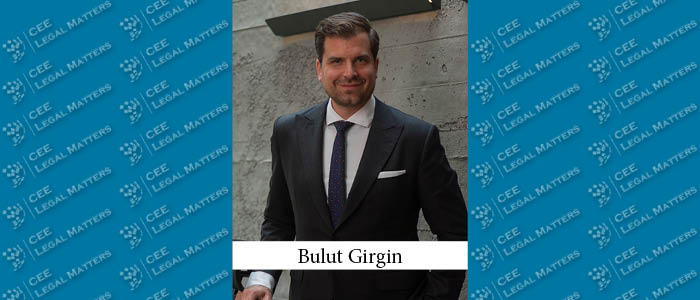Turkiye’s economy is showing signs of a resurgence, according to Gen Temizer Partner Bulut Girgin who has observed increased optimism among international investors recently, despite high inflation, and who reports a booming IPO market indicating a positive trend that could lead to a major economic boom.
"Since the recent changes in the economic leadership, we've noticed an upward trend in Turkiye’s economy," Girgin begins. "While inflation remains high, there's a palpable sense of anticipation among international investors and firms involved in mergers and acquisitions." According to Girgin, this optimism hinges on "Turkiye stabilizing and implementing key reforms. We've already seen significant foreign direct investments, such as the recent investment from BYD, a major Chinese automaker, which is one of the largest FDIs in recent years for the country."
Focusing on high interest rates, Girgin goes on to say that they "certainly pose challenges, making it difficult for companies to access affordable capital." Still, he reports that this has led to a burgeoning IPO market. "We're witnessing several successful IPOs, and many more are in the pipeline. This trend is beneficial as it not only injects capital into the economy but also fosters a culture of public ownership and better governance among Turkish companies." The increased number of publicly traded companies is creating a more consistent business environment, Girgin says, leading to a "reduced dependency on individual founders and improving longevity and stability."
Additionally, Girgin mentions ESG as a particularly hot topic for Turkiye. "We're seeing investments specifically targeting ESG compliance. This interest is driven in part by our strong connections to Western European markets, such as Germany, where supply chain and ESG regulations are becoming more stringent," he reports. "Many Turkish companies are seeking advice on how to comply with these regulations and, additionally, we are facilitating a lot of cross-border collaborations with EU and US companies, particularly in areas related to sanctions and ESG standards," Girgin explains.
Sidestepping to assert the overall M&A activity in the country, Girgin says that it has been quite volatile. "While direct foreign investments are somewhat stable, we do see significant interest from global and regional funds in tech opportunities, especially gaming. If Turkiye’s economy stabilizes and receives positive ratings from international agencies, we can expect more strategic investments in sectors like industrial and FMCGs," Girgin elucidates. "The weak Turkish lira makes local companies attractive targets for foreign investors." Moreover, he reports that local companies are expanding into Europe. "Turkish companies are using the local market as a proof of concept before expanding into Europe, particularly in tech-related consumer products. This trend is accompanied by an 'export' of legal services, where we support Turkish companies in their European operations."
Finally, Girgin reports on recent legislative updates: "One of the most significant upcoming legislative changes is a new piece of competition law similar to the EU's Digital Markets Act. This legislation, which has been in draft form for about a year and a half, will likely create considerable debate, much like the DMA did for tech companies in Europe. We can also expect more ESG-related regulations, such as those related to carbon trading and energy transition." Additionally, he reports that the Turkish competition authority has been extremely active as of late. "There has been an enormous amount of enforcement activity, with dawn raids to hundreds of companies conducted annually. The authority has targeted major tech companies like Meta and Alphabet and initiated investigations on several other local and international companies, resulting in substantial fines — this level of activity has made compliance a critical issue in boardrooms across the country," Girgin concludes.
















